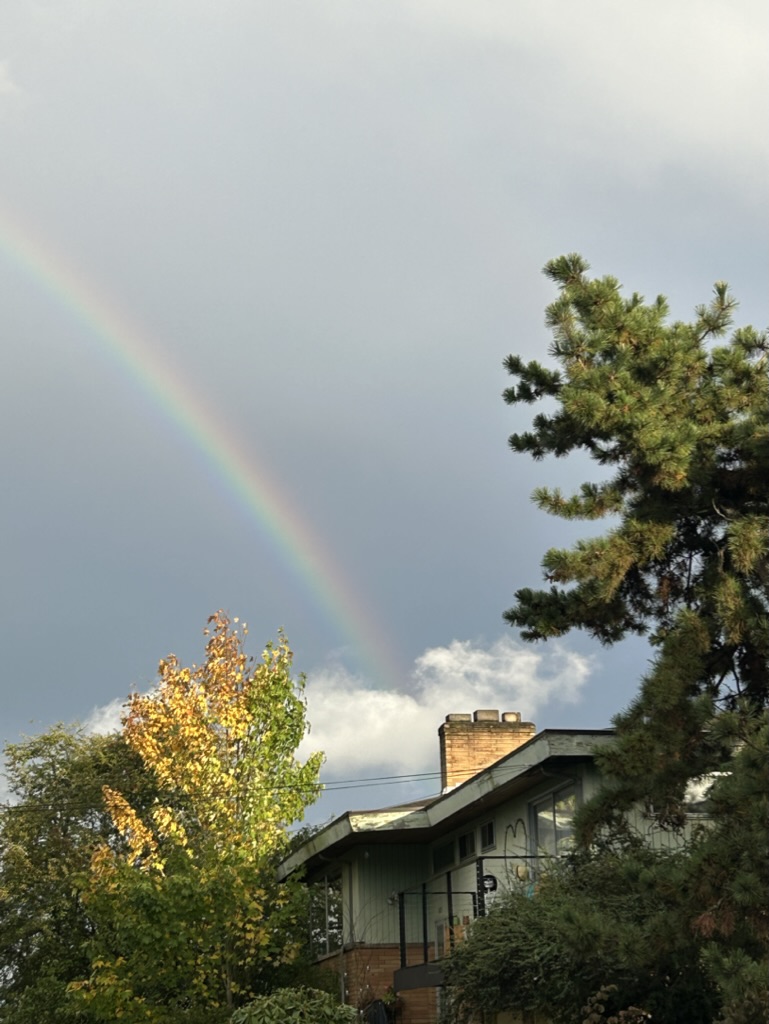Truth, beauty, and goodness delights us. We can rejoice in them.
Mindfulness does not have to be all about reducing stress. It can also be about tuning in to wonder and joy, appreciating the beautiful things in life.
Mindfulness is derived from Buddhism. While I do not purport to be teaching Buddhism, sometimes I will reference ideas that come from Buddhism. This is a way to explain mindfulness concepts. Buddhism does not worship a God, or consider Buddha a god. He was a man who found enlightenment on earth and shared his knowledge with others. Here is one.
A concept in Buddhism is that we all have “Buddha Nature”.
This means that we all have within us the ability to be like Buddha. This meant that we can be peaceful, and also that we can be happy. A nickname for the historical Buddha was “The Happy One.”
We probably all know that the most beautiful things in life are not necessarily possessions. It’s often people, places, memories that make us happy. Smiles, laughter, joyous moments.
We can cultivate joy. We can know where happiness lies and turn our attention there.
In Buddhism there are states defined as wholesome or unwholesome. Envy, greed, anger – these are unwholesome states. Compassion, gratitude, balance, ease. These are wholesome states.
We can also expand this. All beneficial desires create wholesome states. Wanting to help others, working to improve ourselves, wanting to be a good parent. Taking care of a pet, donating to causes that do beneficial work. Doing a favor to a friend, holding a door open for a stranger.
These are all beneficial acts that help us to be in a wholesome state.
We can guard against unwholesome states and cultivate wholesome ones.
This encourages joy by inclining us in that direction. Like a sunflower reaching for the sun, we can turn our attention towards joy.
Don’t let the word JOY trip you up. You can use gladness, contentment, happiness, ease….whatever resonates with you.
It may also help to know that there are positive states, negative states and neutral states. Boredom is a perfect example of a neutral state. The thing about boredom is that it will naturally tip one way or the other. This depends on what you mindfully incline towards.
We can also know that unwholesome states tend to result in contraction in the body – stress, tension, resistance.
Wholesome states, on the other hand, are expansive. They lend themselves to relaxation, acceptance, peace.
If you can’t tell what kind of state you are in, you can try to tap into the body. Notice if there is tension or relaxation. Mindfulness is coming into the present moment and noticing. This can point you in the direction of your energetic state.

When we notice we are in a wholesome state, we can try to maintain it.
This can be elusive at first, if we are chasing a feeling.
We simply notice and say to ourselves, “Oh, I am grateful” “I feel compassionate” “That was a generous moment.”
When we do this, we recognize our beneficial state. This gives the experience more life.
-Stop and see how it feels
-Pay attention. This is the core of mindfulness.
-Really take it in with appreciation
Joy, contentment, peace – whatever you call it – is our true nature at the source. It doesn’t have to look like skipping exuberantly down the street. It can be simple happiness, appreciation. Think of all the everyday things you can appreciate. Running water. A perfectly ripe piece of fruit. A sunset. The greeting of a faithful pet. If we just look around, we can find things that make us happy in their small way.
Here’s a question: Is it possible for you to lean into feeling good for 15 seconds?
If you can lean into positive feelings for 90 seconds each day, you will deepen your neural pathways towards positivity. Once you deepen the neural pathways, you will find these positive feelings more easily. Then you are able to dwell in them more.
90 seconds = 15 seconds x 6. That’s 15 seconds of appreciation 6 times a day for 2 weeks.
90 seconds of lingering in happiness. It can be a real attitude shift for you.
If you are familiar with confirmation bias, it’s that our brains will find what we want to find.
Similar to when you get a new car and all of a sudden you see that car everywhere. There probably aren’t more of them than last week. You are noticing them more because of a personal connection.
We can also create an appreciation bias. When we start appreciating things more mindfully, we will find more to appreciate.
“Whatever one frequently thinks and ponders upon will become the inclination of the mind” – Buddha
There is so much suffering in the world right now. It seems to be getting worse. This is not to suggest that we ignore the suffering or negative things.
We only add to suffering by dwelling in it. When we are mindful, the suggestion is still to notice and reduce what suffering we can, and not linger there. We can also appreciate what’s good for ourselves and in the world.
Awakening Joy can be a subversive act. Joy is an act of resistance.
Resisting those who wish to hold us back, resisting our own impulse to remain small in the face of difficulty.
Light your own fire and burn bright. When we savor the small things, we can be mindful. We then expand these feelings and incline towards joy like a sunflower.

